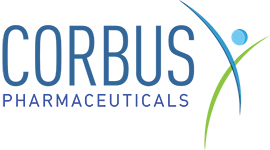Corbus Pharmaceuticals completes Phase II study of JBT-101 for the treatment of cystic fibrosis

Resunab is designed to resolve inflammation thus having the potential to provide significant clinical benefit to CF patients, importantly without immunosuppression.
Corbus Pharmaceuticals Holdings has completed its Phase II study evaluating JBT-101 (Resunab) for the treatment of cystic fibrosis (CF). JBT-101, the company's novel synthetic oral endocannabinoid-mimetic drug, is designed to resolve chronic inflammation and halt fibrosis. Corbus expects to report topline data from this study in the first quarter of 2017.
"We are pleased to announce the on-schedule completion of our Phase II trial evaluating JBT-101 for the treatment of cystic fibrosis. We would like to express our sincere gratitude to all the individuals, their clinicians and the clinical staff who participated in this trial," stated Yuval Cohen, CEO of the company.
The international, multi-center, double-blinded, randomized, placebo-controlled Phase II study is supported by a $5 million Development Award from Cystic Fibrosis Foundation Therapeutics. The primary objective of the study was to test safety and tolerability of JBT-101 in adults with CF who had forced expiratory volume in 1 second (FEV1) percent predicted at least 40%, without regard to their CFTR mutation, infecting pathogen, or baseline treatment. Secondary objectives were to evaluate changes in pro-inflammatory and pro-resolving lipid mediators as a marker of mechanism of action of JBT-101 and to evaluate efficacy with FEV1 and Cystic Fibrosis Questionnaire Revised - Respiratory Symptom Score. Exploratory outcomes included effects of JBT-101 on biomarkers of inflammation and the sputum microbiome. Eighty-five subjects on stable standard-of-care medications were dosed with study product at 21 CF centres in the US and Europe and treated with study product daily for a period of 84 days, with a follow-up period of 28 days.
"We look forward to having our first safety data on JBT-101 in CF. Because excessive inflammation is a key driver of airway obstruction and lung damage over time in CF, resolving inflammation has the potential to provide significant clinical benefit to CF patients, importantly without immunosuppression," said Barbara White, Chief Medical Officer of the Company. "We believe that showing that JBT-101 has an acceptable safety profile in CF is a gate-keeping event for its further clinical development in CF, and we anticipate announcing top-line results before the end of the first quarter of 2017."
JBT-101 was granted Orphan Drug Designation and Fast Track status for the treatment of CF from the FDA in 2015 and was granted Orphan Drug Designation by the European Union for the treatment of CF in October 2016. The Company recently reported positive topline data results from its Phase II study in diffuse cutaneous systemic sclerosis (systemic sclerosis), showing clear signal of clinical benefit with JBT-101. Additionally, JBT-101 is being evaluated in a Phase 2, 12-month open label extension study in systemic sclerosis, a Phase II study in skin-predominant dermatomyositis, with a 12-month open label extension study in dermatomyositis and a another Phase II study in systemic lupus erythematosus ("SLE") planned to commence in the first quarter of 2017.
Related News
-
News BioNTech to begin mRNA vaccine manufacturing in Rwanda by 2025
German biotechnology company BioNTech has stated their intentions to begin production at their mRNA vaccine factory in Rwanda by 2025, which will mark the first foreign mRNA vaccine manufacturing site on the continent of Africa. -
News Identifying Alzheimer’s Disease biomarker proteins with whole blood tests
A University of Manchester spin-out pharmaceutical company, PharmaKure, has reported successful study results for the quantification of Alzheimer’s Disease biomarker proteins with a whole blood test. -
News Bill & Melinda Gates Foundation to boost mRNA vaccine initiatives in Africa with USD $40m
To address vaccine inequality and accessibility issues, the Bill & Melinda Gates Foundation aims to deliver USD $40m to various biotech companies and vaccine manufacturers in support of mRNA vaccine development. -
News CPHI Podcast Series: Exploring neurological frontiers in Alzheimer's and beyond
The next episode of the CPHI Podcast Series delves into the science and background behind some recent developments in the field of Alzheimer's disease and neurological disorders. -
News Is patient centricity the future of pharmaceutical manufacturing?
In this interview with Sandra Sánchez y Oldenhage, President of PharmAdvice, she speaks to the importance of considering patients in the manufacturing stages of the pharmaceutical supply chain, and how it can redefine healthcare. -
News CPHI Podcast Series: How to leverage AI for Drug Discovery
Artificial intelligence is the topic of debate in the latest episode from the CPHI Podcast Series, where Digital Editor Lucy Chard speaks with Bill Whitford of DPS Group about the integration of AI in healthcare. -
News Pfizer forges ahead with blood cancer therapy after approval from FDA
Pfizer gains accelerated approval from the US FDA for their new bispecific antibody therapy for multiple myeloma, set to address an unmet need for patients. -
News Alzheimer's drug donanemab deemed effective in landmark clinical trial
Results from the TRAILBLAZER-ALZ 2 Randomised Clinical Trial into the use of donanemab to treat early symptoms of Alzheimer’s disease have been analysed.
Position your company at the heart of the global Pharma industry with a CPHI Online membership
-
Your products and solutions visible to thousands of visitors within the largest Pharma marketplace
-
Generate high-quality, engaged leads for your business, all year round
-
Promote your business as the industry’s thought-leader by hosting your reports, brochures and videos within your profile
-
Your company’s profile boosted at all participating CPHI events
-
An easy-to-use platform with a detailed dashboard showing your leads and performance







